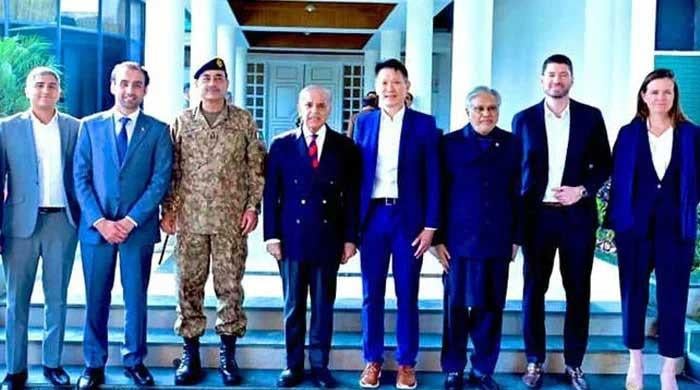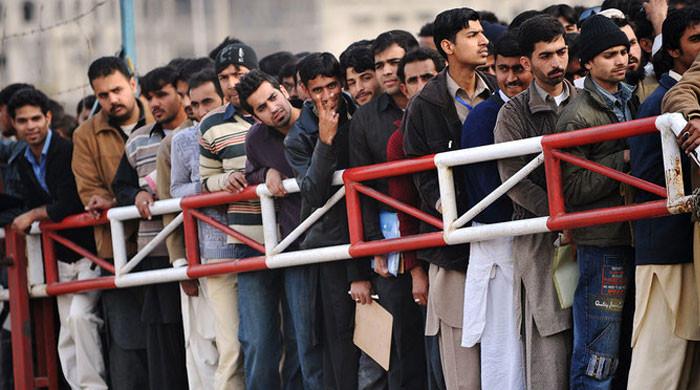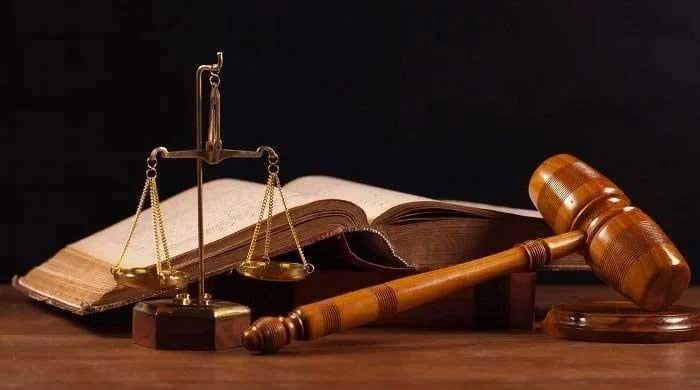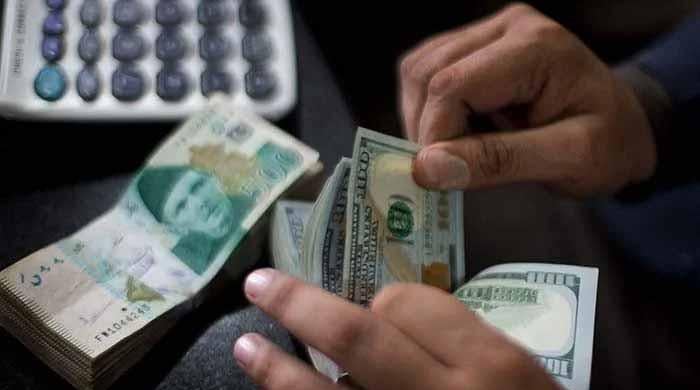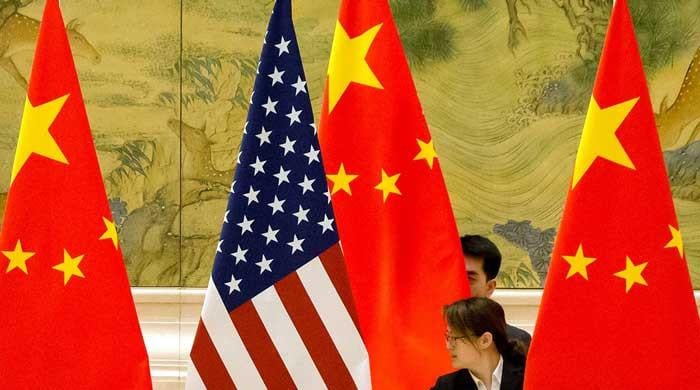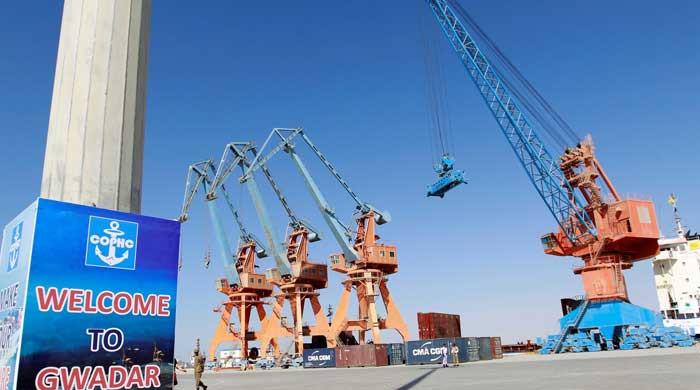Imran’s political ‘fault lines’
Imran still keeps followers guessing about his next move and some more surprises he has so far failed to deliver
November 22, 2022
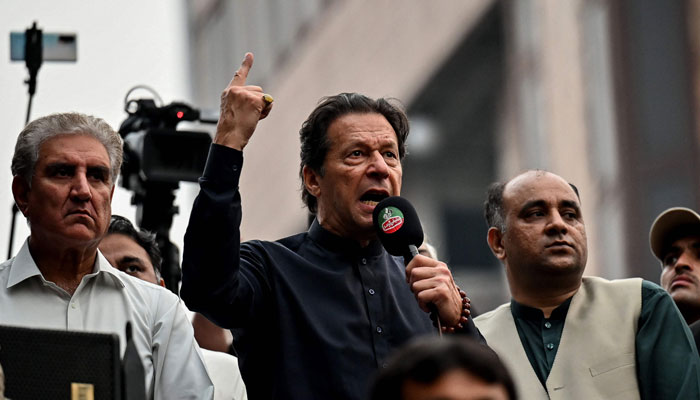
In cricket, fast bowlers usually bowl their hearts out for early breakthroughs in the first few overs but save their energy for the last critical few.
Cricketer-turned-politician Imran Khan, one of the best three all-rounders of his time, perhaps went too far and too fast in politics, which has now put challenges ahead. These are far more difficult for him than they were perhaps three months back as he plans to enter Rawalpindi on November 26, at a time when Prime Minister Shehbaz Sharif is to announce the new army chief.
Imran is still keeping his followers guessing about his next move and some more surprises, he so far has failed to deliver. He went too fast and opened too many fronts in between, ranging from anti-American narrative to anti-establishment, attacking the chief election commissioner, besides questioning the media's and judiciary's roles as well.
Known for taking U-turns and then defending them, he changed his stance when he said, “If the establishment was not behind the vote of no-confidence they could at least have stopped these chors (thieves) and dakus (robbers)." He said that without naming Sharifs' and Zardari.
In what looks like his last bid to get something out of his months-long protest against the present coalition government of nearly 13 parties including PML-N, PPP, JUI-F, MQM-Pakistan, ANP, BNP-Mengal, he is anxiously awaiting the appointment of the new army chief. His long march seems to have been perfectly timed with the appointment of the new chief of the army staff.
Imran told his party leaders and workers that November 26 would be the biggest "show of strength". The purpose seems to be to convey a message to the new establishment about the kind of public support he enjoyed.
While in all probability, it will be the end of the long march without reaching Islamabad as things could go in any direction in case the choice of selection disappoints Imran Khan.
So, where exactly Imran went wrong since the day he became the Prime Minister of Pakistan and surprised both mainstream and much experienced parties like PML-N) and PPP in 2018? His party, PTI, emerged as the single largest party but short of a simple majority which it achieved with the support from MQM-P, BAP, PML-Q, and others.
The establishment fully backed Imran’s government and the two enjoyed the best of relationships till once when Imran was informed about his hand-picked chief minister of Punjab, Usman Buzdar, and all kinds of stories about him. Even within PTI also his name was controversial from day one. Yet, Imran turned down all criticism and gave cold shoulder to the establishment also in this case.
Imran was lucky that the establishment rescued him when all anti-PTI parties in the Senate decided to bring a vote of no confidence against Chairman Senate Sadiq Sanjrani. They had the majority yet Sanjrani survived.
During the Senate elections for the Islamabad seat, the opposition pitted former prime minister Yusuf Raza Gillani against PTI, which had the majority in the National Assembly. This time Imran and PTI got a surprise similar to the case of Sanjrani.
But, sources said, establishment had alerted Khan that some of his party MNAs were in touch with PPP and PML-N.
It was the first sign of distrust between Khan and the establishment, though the latter had warned him, he thought they would rescue him.
He was all praise for the chief election commissioner as well as the NAB chairman. Later, he said NAB was not in his control and labelled ECP chief as PML-N’s man.
Imran went too far in October 2021 over an appointment on a key post.
The then opposition took advantage of this situation and brought a vote of no confidence against the PM on March 8 of this year.
Initially, Imran thought the move would be defeated and he assured the same to his party fellows. He also held meetings with the establishment in between and did not bring up the "cipher" issue till March 27, when the battle was almost lost.
His last bid attempt was through the acting speaker of the National Assembly who without debate rejected the move, which was later restored by the Supreme Court. It was at this stage Khan when realised "the party is over".
After April 10
Imran after losing the support of the allies lost the confidence of the House. He did not accept the result and resigned from the lower house as a protest. Imran and his party till that day were being criticised for bad governance and price hike. They lost most of the by-elections.
His ouster from PM House on April 10 came as a blessing in disguise and he never looked back. Had PDM and PPP announced fresh elections within 90 days after ousting Imran it would have gone in their favour. Secondly, the decision to appoint the controversial Shahbaz Sharif as prime minister and his son Hamza Shahbaz as chmef Minister Punjab were also wrong moves. Thirdly, the way Hamza was brought in did not pay off and as a result, Imran Khan started regaining his popularity and in the process won 15 out of 20 MPAs seats in the by-elections.
Fourthly, the Shahbaz Sharif government also failed on the economic front as they could neither arrest the rupee depreciation nor cap the price hike.
While Imran continued to rally support, he unnecessarily opened a front with the establishment and that too in the public meetings. Indeed, the establishment was not on one page and there were reports of divisions within regarding all these developments. They decided to pursue both the government and the opposition for fresh elections. At one stage the government was ready and it was between May 15 and 25, but the scenario changed after Imran Khan entered Islamabad, which the government tried to stop by force.
Imran then started attacking the establishment and went too far when he claimed a senior officer along with Prime Minister Shahbaz Sharif and Interior Minister Rana Sanaullah tried to kill him. The FIR to this date has not been registered.
These attacks both from him and his social media supporters antagonised the establishment. Imran's strong support base is the youth of Pakistan and their families. These were not mere fan-club but emerging political workers who are in majority in Pakistan. Imran could have set his political direction correctly without going too far in the attack and that too without any evidence.
The launch
Khan never wanted to enter politics. The first offer he received to join politics came from former military dictator General Zia ul Haq’s son in the late 70s, but he politely turned it down. But, he was on the radar for his extraordinary leadership quality as a captain of the national cricket team and the charisma which ultimately led to Pakistan to its first-ever World Cup in 1992.
In the twilight of his career, Khan retired from cricket and decided to fully concentrate on building a cancer hospital after his mother’s name Shaukat Khanum. The world cup victory had taken Pakistan by storm and he became a hero of the nation. All this gave him a real boost to his fundraising campaign to build the hospital. Years later his dream came true and the hospital was completed.
Imran’s entry into politics was certainly not "accidental". In 1993, he joined a procession from Mazar-e-Quaid to Tibbat centre in Karachi on the eve of Pakistan Independence Day. The rally was planned by certain people within those who matter. Late Maulana Abdul Sattar Edhi, hockey legend Islahuddin, squash legend Jahnagir Khan, and others were also invited. Khan had no idea what it was all about but Edhi sahb — and that is why he first refused — told him it was in the "national interest". The whole story was once narrated to me by Edhi’s close associate, the late Anwer Kazmi.
Khan too was quite surprised. Once, a former Pakistan captain told me about it in these words.
“Yes, briefly I did join his group and was inspired by his programme and mission. Later I realised that he has a different agenda and I distanced myself,” Khan said.
After 26 years, he has emerged as a key player in politics but needs to revisit his policies. He will have to sit down and think about what he has achieved and where did he go wrong to develop a better rapport with the new establishment, which in any case would be installed by November 28 and the new army chief would come for three years on November 29.
Imran Khan may be down in the present political scenario but those who think he is out too may have their reasons but they don't look like it.
— The writer is a columnist and analyst at GEO, The News and Jang. He tweets @MazharAbbasGEO




